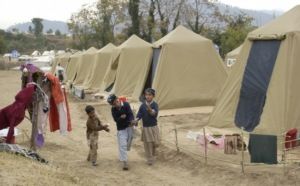News
Danish News Round-Up: Asylum-seeker number down by 50 percent this year
This article is more than 5 years old.

Application numbers have understandably fallen due to the coronavirus (photo: Pixabay)
A historically low number of asylum-seekers have come to Denmark so far this year. In 2019, 2,716 people applied for asylum, but only 830 new asylum applications have been registered this year.
READ MORE: More refugees leaving Denmark than arriving
The Danish immigration service, Udlændingestyrelsen, estimates the decreased number of asylum-seekers will save the government up to 359 million kroner.
According to Udlændingestyrelsen, it annually costs 277,841 kroner to accommodate an asylum-seeker.
The minister of immigration and integration, Mattias Tesfaye, has informed the public that the money will return to the state treasury.
However, MPs believe that the number of applicants will increase in the second half of the year as the country is opening up again.
READ MORE: Denmark accepts just 200 quota refugees from Rwanda
Mette one of the most eloquent world leaders
In Development Acamedy’s recent rankings PM Mette Frederiksen has been ranked one of the most eloquent world leaders. The institution assessed the communication and public speaking skills of the leaders of the world, going through more than 100 hours of footage from their public appearances over the last 12 months. Mette has been ranked in sixth place. “The Prime Minister of Denmark is authentic and relatable, while also being clear and decisive,” noted the institution.
Nearly a half of pre-teens go to school on their own
According to the Danish Road Safety Council and TrygFonden, nearly half of the country’s pre-teens (ages 5-12) go to school by themselves. Most of them walk or cycle according to the new survey in which 369 parents with children aged 5-12 years were asked. In the 10-12 age group, 72 percent go to school alone. The council urges drivers to show extra consideration for the children. In another study published earlier this year, 18 percent of motorists admitted they had been driving too fast on a school road up to several times in the last three months.
Spain not safe to travel again
Spain has turned orange again in the recently updated travel guide by the Foreign Ministry. “We now advise against all unnecessary travel to Spain, because Spain no longer meets the criteria for low infection rates in the model for travel guides for the EU and Schengen countries,” explains the ministry. Danish holiday-goers who are already in Spain are encouraged to be tested for the coronavirus after returning home. However the Danish Travel Agency Association (DRF) believes banning the whole country without considering the Balearic islands and the Canary islands separately is nonsensical. According to the association these areas have no alarming increase.
Four passengers on a ferry trip to Norway tested positive
Four people have been diagnosed with coronavirus after a ferry trip from Hirtshals in North Jutland to Kristiansand in Norway, the Norwegian National Institute of Public Health confirms. Three of them were on the Color Line’s ferry on July 29. The other person was on the same route on August 4, but in business class. Both the Danish and Norwegian health authorities encourage passengers who have been on the ferry to get tested if they are concerned. Color Line has informed all travellers on the two crossings by text message or email.










































